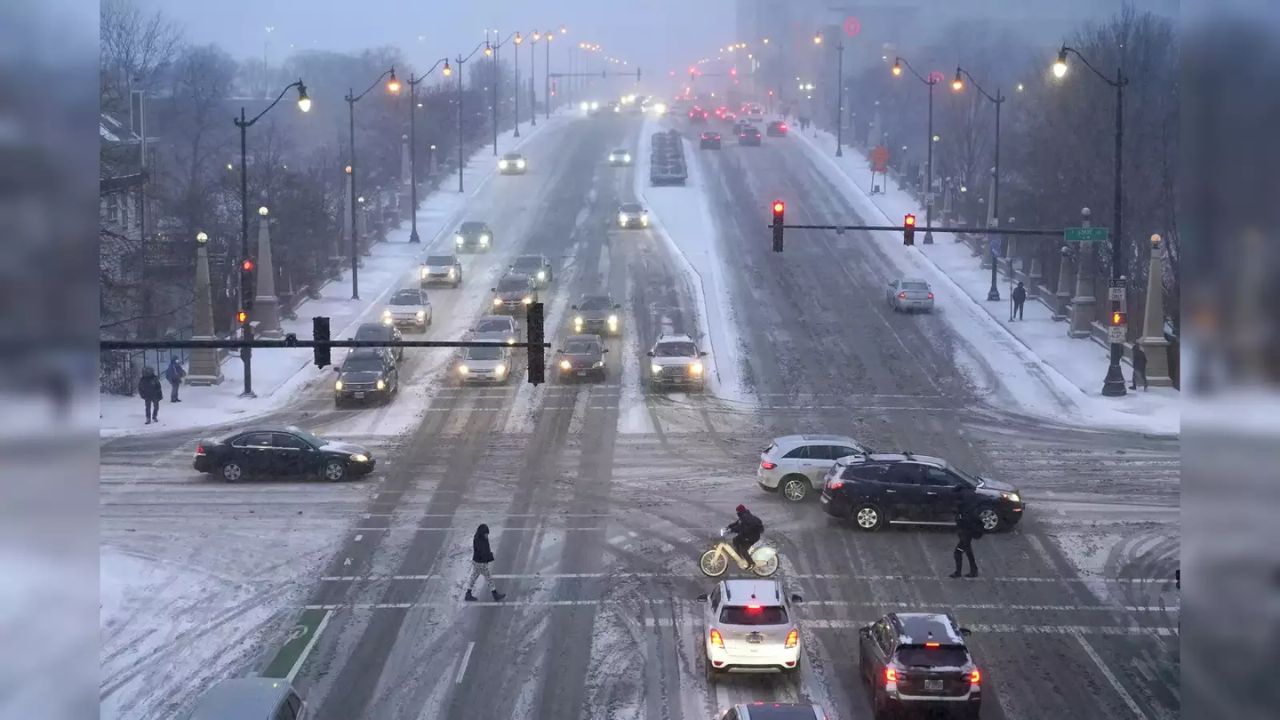Georgia Fire Weather Alert: Red Flag Warning Issued For Saturday, March 1, 2025
The dry winter season moves into spring, during which the National Weather Service (NWS) released a Red Flag Warning that covers different Georgian regions.
The Red Flag Warning will be active from 11 AM until 8 PM on Saturday, March 1, 2025. Every resident should take necessary precautions because dangerous wildfire conditions exist throughout these areas.
Understanding Red Flag Warnings
The warning alert, known as a Red Flag Warning, signals that conditions are perfect for destructive wildfire development. The alert emerges from conditions of heavy winds together with dry vegetation alongside low atmospheric moisture levels.
Saturday in northeast and central Georgia will experience dry conditions because the National Weather Service predicts gusty winds of 15-25 mph combined with humidity falling below 25%.
Affected Areas
The Red Flag Warning spreads across Atlanta while also embracing rural regions of Macon and Augusta combined with North Georgia mountain regions. The NWS believes fires will present the greatest danger in wooded areas combined with dry grassy fields since these fuels burn rapidly once ignited.
Local Responses And Preparedness
Officials at the Georgia Forestry Commission and local fire departments dedicate time to prepare responses for fire dangers throughout the weekend period. The education programs through Community Fire Prevention ramp up to teach people how to stay safe from fires through proper burning practices and activities that can trigger accidental blazes.
Citizens need to exercise both awareness and action during the high-risk period. Essential safety tips include:
- The practice of outdoor burning should always be avoided due to current fire conditions.
- The use of outdoor items producing sparks, including barbecues and chainsaws, should be avoided.
- Call authorities at once to report fire hazards or columnar smoke debris.
Historical Perspective On Georgia Wildfires
Repeated wildfires occur throughout Georgia’s forested grounds throughout yearly seasons. Previous droughts along with intense windstorms have caused widespread fire destruction throughout Georgia.
During the spring of 2020, the state faced serious wildfire emergencies that destroyed large forest sections, leading to forced population displacements.
Climate Trends And Wildfire Risks
Expert recommendations show climate patterns will trigger an increase in both the number and force of wildfires. The increased heat and arid winter climate extend wildfire seasons, so Georgia citizens need to track their area’s fire alert reports.
Community Engagement And Education
Community involvement serves as a critical measure to reduce wildfire threats in the local area. The Georgia Forestry Commission operates actively by contacting schools along with neighborhoods and city councils to deliver wildfire safety information about prevention tactics and response approaches.
A series of upcoming community forums and educational workshops will teach residents about protection methods for their houses and natural resources, which will begin in the following weeks.
The speakers from the firefighting crew will present hands-on tips about defensive property space creation together with basic information regarding evacuation routes.
Looking Ahead
Meteorologists will maintain active weather trend observation during the Red Flag Warning, which begins on Saturday. The situation becoming worse may trigger additional warnings or advisory declarations in predetermined geographic locations.
Local officials, together with residents, share the same priority about making shared commitments to prevent wildfire danger. Community awareness, in conjunction with preparedness measures, will function as the key component in decreasing fire threats during the upcoming wildfire season.
People who live in affected areas can reduce wildfire threats and safeguard their properties and environmental settings. Keeping oneself aware of fire threats with adequate preparation serves as the most effective way to protect against fires.

